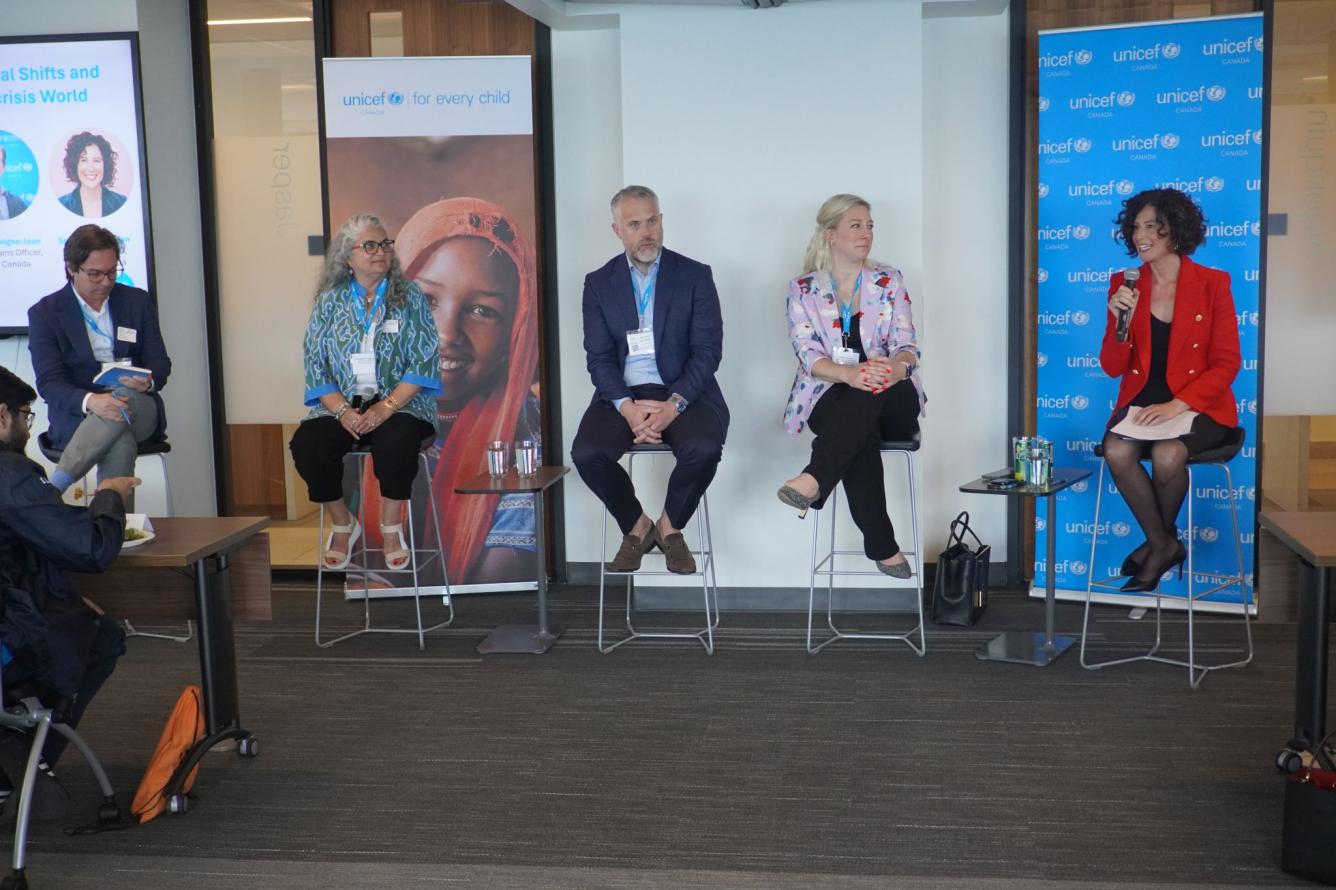Resetting the Geopolitical Table: Global Shifts and Humanitarian Action in a New, Polycrisis World.
Our Grandma’s dictionary. She loved words. Read multiple papers a day, right up to her 94th year.
There’s a word not yet in this edition. Nor the morning papers then. Today, it’s hard to miss: “polycrisis.” The phenomenon of multiple challenges affecting the world simultaneously.
This week, an incredible panel of Sarah Chapman, PhD Peter John Loewen, Niloufar Pourzand PhD, Thierry Delvigne-Jean joined me for a discussion hosted by UNICEF Canada on, “Resetting the Geopolitical Table: Global Shifts and Humanitarian Action in a New, Polycrisis World.”

It provided a behind-the-scenes look into some of the key changes taking place around the world and how they’re impacting life now and over coming generations: from supply chain disruptions, new political alliances, AI, to cutting edge approaches to mitigate and manage climate change.
Guests from some of Canada’s leading companies, foundations, NGOs and associations+ listened to insights that included:
1. AI’s Insatiable Energy Addiction: $40B. That’s the amount that social media giant Meta plans to invest into AI over the next year alone. Did you know ChatGPT requires 15X more energy than a traditional web search? AI will consume a quarter of the electricity in the US by 2030; Asia will use half of the world’s electricity by 2025. How organizations are preparing for this (ie. solar-powered schools, hospitals, water systems) is key.
2. The Climate-Changed Child: UNICEF’s work on climate impact on children began in Indonesia in 2010. We know climate change has unique, negative impacts on kids: children breathe twice as often as adults and can’t cool off their bodies the same way sometimes leading to organ failure in extreme heat. Extreme temps see pre-term labour up; changes in breastmilk composition, quantity. Good climate policy needs a child lens.
3. ESG Regulation Race: The last 5 years were a race to make commitments, the next 5 are a race to land them. China's caught up and leapfrogged – moving faster than any other country in this space; including investing in renewable energy ~500X more than the rest of the other countries combined.
4. Canada’s preparedness for a new world order: Canada recently committed $72B over the next 20 years on net new defence –- much around enhancing arctic capabilities where the links between sovereignty, power, water are real. As one panelist said, “Where water goes, the shopping lanes open.”
5. Food Insecurity: Africa has 60% of the world’s uncultivated land, but 3 in 4 people cannot afford a healthy diet. Food insecurity and its link to nutrition is tangled in a web of factors leading to the triple burden of malnutrition: undernutrition, micronutrient deficiency and obesity, globally. 1 in 3 kids are growing up malnourished today.
The future rearranges. But a commitment to progress need not.
Profound thanks to leaders from all sectors taking collective action to tackle these complex, layered issues head on.
